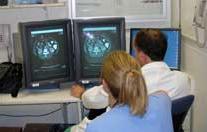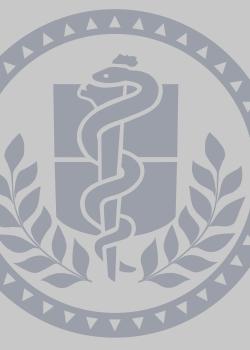Pediatric Emergency Medicine Fellowship
Courtney Hines Fellowship Coordinator
Location: 550 E. Genesee St, Syracuse, NY 13202
Google Maps & Directions
Phone: 315 464-6204
Email: hinesc@ngskmc-eis.net

Erin Hanley, MD
Fellowship Director, Pediatric Emergency Medicine
Fellowship Description
The goal of the Pediatric Emergency Medicine Fellowship is to train national leaders in the Subspecialty of Pediatric Emergency Medicine.
The program is based at the Pediatric Emergency Department of Upstate University Hospital and within the Department of Emergency Medicine The Pediatric Emergency Department was founded over twenty years ago and was one of the first in the country to be established outside of a free standing children's hospital. The department has a long history of being a leader in pediatric care in the Upstate region both clinically and as a center for education and research. The department has experienced a steady growth in annual visits for the last several years and anticipates continued growth with the opening of the Golisano Children's Hospital at University Hospital.
Fellowship Stats
- Fellowship Length: 2-3 years
- Number of Positions: 4
- Salary/Benefits: PG Year 4 Salary & Benefits
Office, research and support provided - Conferences: American College of Emergency Physicians, American Academy of Pediatrics
- Deadline for Applications: April 15
University Hospital


University Hospital is the tertiary care center for the Central New York region. It has the only Level I Trauma Center, burn treatment center, hyperbaric treatment unit, and pediatric intensive care unit in a 15-county region (from Pennsylvania to the Canadian border). The Department of Emergency Medicine directs the Central New York Poison Control Center. The Pediatric Emergency Department is the only one from Rochester to Massachusetts and from Philadelphia to the south and Ottawa and Montreal to the north. Supervision is provided by Pediatric Emergency Medicine Physicians as well as Emergency Medicine Physicians. Current pediatric emergency medicine faculty are well-referenced contributors to the field of Pediatric Emergency Medicine both within the American Academy of Pediatrics and the American College of Emergency Physicians.
Primary Training
Fellows may have received primary training in either Emergency Medicine or Pediatrics. Through an integrated program of clinical experience and responsibility, research training and performance, and administrative duties, fellows gain the skills needed to assume a leadership role in this important field. The fellowship is accredited by the Residency Review Committee for Emergency Medicine of the ACGME. The fellowship participates in the Electronic Residency Application Service (ERAS) and the National Residency Matching Program (NRMP).



Adrienne Cheng, MD Kathyrn Keenan, MD Dane Nickel, MD



Component Objectives
Objectives for Teaching Component
- Participate in the teaching programs of the Department of Emergency medicine. Teaching activities include: resident and student precepting during patient care; lectures; x-ray and case conferences; mock codes and mock trauma; PALS and other pediatric emergency medicine and trauma courses and converences.
- Become familiar with and be able to teach common principles of injury prevention.
- Organize ED morbidity and mortality conferences.
- Help organize and participiate in monthly didactic seminars for fellows on pediatric emergency medicine topics
Objectives for Research Component
- Complete at least one original research project
- Ideally, present results from original research at a national meeting
- Participate in ongoing research seminars, monthly research forums, and journal club meeting of the Department of Emergency Medicine
- Participate in the writing of a research grant proposal
- Attend one national professional meeting per year
- Become familiar with fundamental concepts of study design, epidemiology, biostatistics, scientific writing, research paper presentation, and grant proposal preparation
- Become familiar with the function of the Insitutional Review Board for the Protection of Human Subjects
- Complete the online course, CITI Collaborative IRB Training Initiative to gain familiarity with the ethical conduct of research projects and the protection of human subjects
- Become more proficient in critically reviewing and evaluating the strengths and weaknesses of scientific articles
- Become more proficient in computer research skills, including word processing, graphics, simple programming, and data management and analysis
Objectives for Administrative Component
- Become familiar with DNV quality assurance requirements for hospital emergency departments
- Take part in the quality assurance activites of the Department of Emergency Medicine
- Participate in seminars for pediatric emergency medicine fellows, which will introduce the fellows to concepts, issues and skills related to the administration of an emergency department: e.g., medical-legal issues, managed care, public relations, facilitating group discussions, media relations, budgeting, planning, community MGH services, and child advocacy
- Serve on a hospital committee or community EMS committee as a representative of the Department of Emergency Medicine
Curriculum: Primary Training in EM
The schedule consists of twelve 4-week blocks.
Year 1
Pediatric Emergency Department (six 4-week blocks)
- Gain experience in airway management, including bag-valve-mask ventilation and intubation, in a variety of situations: e.g., trauma, respiratory arrest, critically ill patients.
- Gain experience in venous access, including IV placement, percultaneous deep line placement, cutdowns, and intraosseous needle placement.
- Gain experience in local and regional anesthesia: e.g., topical anesthetic usage, gigital block.
- Become familiar with conscious sedation techniques for ED patients.
- Gain a better understanding of pain management for ED patients.
- Become more proficient in laceration repair, nail bed injury repair, minor fingertip amputation management, abrasion managment, burn management, and dressing application
- Evaluate and manage children presenting a wide spectrum of disease and trauma.
- Evaluate and stabilize trauma patients as a member of the trauma team.
- Synthesize and apply knowledge and skills obtained during other rotations in the evaluation and management of acutely ill and injured children in the ED.
- Precept residents and medical students working in the ED.
- Participate in the ongoing ED educational and quality assurance activities
- Give one or two emergency medicine presentations to residents and medical students rotating through the ED.
- Organize and present Pediatric Case Conference for the Emergency Medicine Resident Lecture series.
- Become familiar with the operation and administration of the Pediatric Emergency Department and gain the skill and comfort needed to effectively manage the department during busy shifts.
Pediatric Anesthesia (one 4-week block)
- Become comfortable with bag-valve-mask ventilation
- Become more comfortable with intubation techniques, especially infants, older children and adolescents including the use of laryngeal mask airways and other devices used during difficult intubations
- Become familiar with drugs used for anesthesia, including their indications, contraindications, and side effects: succinylcoline, thelopental, stropine, fentanyl, halothane, lidocaine, morphine, pancuronium, vecuronium, ketamine, nitrous oxide, benzodiazepines
- Become familiar with anesthesia and neuromuscular paralytic techniques used in different situations: e.g., cerebroprotective, hemodynamically unstable, rapid sequence inductions
- Gain experience in venous access
- Understand and be able to perform an appropriate pre-anesthesia assessment of a child including assessment of the airway, important cardiovascular parameters, pre-morbid medical factors, the presenting medical problem and parental interaction
Pediatric Intensive Care Unit (two 4-week blocks)
- Evaluate and manage critically ill children
- Gain experience in critical care procedures: e.g., central line placement, Arterial line placement, intubation.
- Become familiar with vasoactive and other continuous IV infusion Medications, including their indications, contraindications, and side effects: Dopamine, Dobutamine, Nitroprusside, Epinephrin, Norepinephrine, Lidocaine, Fentanyl, Terbutaline, Sodium bicarbonate, Naloxone
- Review respiratory physiology and become more proficient in managing patients on ventilators.
- Review ECG interpretation.
- Become familiar with end-of-life decisions in pediatric patients and the team approach involving a multidisciplinary team to support families during this proces
- Review a critical care topic and give a pesentation on this topic.
- Know all the patients
- Coordinate care, supervise residents (especially if senior fellow)
- Assist in running rounds (especially if senior fellow)
- Keep PICU attending informed
- Scheduled nights on call at home if unit quiet, stay in house or come in for critically sick patient
- Fellow may go out on transport of critically ill patient
- Teach residents on rounds & throughout the day at bedside
- One or two formal resident lectures, topic chosen by fellow
Pediatric Outpatient Rotation (two 4-week blocks)
- Become familiar with normal child development, the range of ages at which major developmental milestones are reached and be able to discuss how these various developmental changes impact the presentation of children with various diseases and injuries
- Become familiar with immunizations which are currently recommended for healthy children as well as children with various chronic illnesses (e.g., asthma, immunodeficiency, sickle cell disease, etc.), routine pediatric immunization schedules and the effectiveness and possible complications of these immunizations.
- Become familiar with routine infance feeding practices including breast-feeding, use of proprietary infant formulas, introduction of solid food and indications for vitamin supplementation in chilren.
- Become familiar with the diagnosis, evaluation and management of common, minor infectious diseases in children (e.g., viral URI, viral gastroenteritis, pharyngitis, otitis media, uncomplicated UTI and pneumonia).
- Become comfortable with the management of routine pediatric problems on an outpatient basis. The pediatric issues which the fellow should be familiar with include but do not need to be limited to: asthma, chronic constipation and encompresis, normal newborn complaints (cord and circumcision care, neonatal acne, colic, eye complaints and sleep issues), toilet training, failure to thrive, enuresis, school avoidance, behavioral issues including attention deficit hyperactivity disorder, iron deficiency anemia and lead poisoning, and common dermatological problems
- Become familiar with the anticipatory guidance that should be offered to families with children of various ages.
- Become comfortable in the evaluation of adolescent problems.
Pediatric Surgery (one 4-week block)
- review th eevaluation and management of the acute abdomen and other sugical problems such as: intussusception, incarcerated hernia, pyloric stenosis, malrotation/volvulus, appendicities, pancreatitis, peritonitis, GI bleeding, burns.
- Gain experience in procedures, such as central line placement, thoracostomy tube placement, cutdowns, and arterial line placement
- Gain experience in abscess incision, drainage, and packing.
- Become familiar with common surgical problems: eg., G-tube replacement, Broviac repair, Broviac infection, hernia reduction, and paraphimosis reduction
Year 2
Pediatric Emergency Department (eight 4-week blocks)
Pediatric Orthopedics (one 4-week block)
- Become familiar with fracture terminology and be able to accurately describe a fracture to a consultant.
- Become familiar with and perform simple reductions: e.g., Boxer\'s fracture, digit dislocation, nursemaid's elbow, patellar dislocation, and shoulder dislocation.
- Gain experience in casting, splinting, and other immobilization techniques.
- Gain experience in arthrocentsis.
- Become familiar with common outpatient problems: e.g., sprains, strains, Osgood-Schlatter disease, chondromalacia.
- Learn to recognize and evaluate hip problems: e.g., septic arthritis, toxic synovitis, Legg-Calve-Perthes Disease, slipped capital femoral epiphysis.
- Become familiar with and perform fracture reductions and stabilization of neuro-vascularly compromised injuries.
- Become familiar with skeletal infections: e.g., osteomyelitis, discitis, septic arthritis.
- Become familiar with preparation for OR treatment of open fractures: e.g., tetanus and antibiotic prophylaxis.
- Become familiar with the appropriate radiological views and studies indicated for the above-mentioned conditions.
- Become familiar with compartment syndrome.
Toxicology (one 4-week block)
- Become familiar with toxicological emergencies and management strategies, including: Ipecac, Gastric lavage, Activated charcoal, Cathartics, Whole bowel irrigation, Specific antidotes
- Become familiar with common toxidromes
- Become familiar with the pharmacokinetics of common ingestions and therapeutic drug monitoring used in the ED setting.
- Become familiar with other poisonings
- Observe specialists who handle calls in the Poison Control Center and become familiar with the services provided.
- Gain experience in the use of the Poisindex©
- Give a presentation during the month on an aspect of toxicological emergencies
- Take night call as first call (with attending backup) approximately every third night for the toxicology service.
- Follow up Poison Control Center consults given by phone to other institutions
- Participate in inpatient toxicology consults and follow-ups
- See patient in the ED who are being evaluated and treated for a toxicological problem.
Ob/Pediatric Emergency Department (one 4-week block)
Child Abuse Refferal & Evaluation (one 4-week block)
- Be familiar with normal male and female genital anatomy findings from birth to adolescence.
- Be able to describe the apidemiology of child physical abuse, sexual abuse, and neglect.
- Be able to obtain an appropriate history and conduct an appropriate anad accurate physical examination of children when there is a concern a child abuse or neglect, including sexual abuse.
- Be able to accurately document the findings of history and physical examinations in these children.
- Be familiar with the use of the culposcope and recording findings of culposcopic examinations.
- Be familiar with the role of the physician as both a fact witness and an expert witness in both the family court and criminal court systems.
Curriculum: Primary Training in Pediatrics
The schedule consists of 12 4-week blocks.
Year 1
| Block 1 | Pediatric Emergency Department |
| Block 2 | Pediatric Anesthesia |
| Block 3 | Pediatric Intensive Care Unit |
| Block 4 | Pediatric Intensive Care Unit |
| Block 5 | Pediatric Emergency Department |
| Block 6 | Adult Emergency Department
|
| Block 7 | Adult Emergency Department |
| Block 8 | Pediatric Emergency Department |
| Block 9 | Research
|
| Block 10 | Pediatric Surgery |
| Block 11 | Pediatric Emergency Department |
| Block 12 | Research |
Year 2
| Block 1 | Pediatric Emergency Department |
| Block 2 | Adult Emergency Department |
| Block 3 | Pediatric Orthopedics |
| Block 4 | Toxicology |
| Block 5 | Pediatric Emergency Department |
| Block 6 | Research |
| Block 7 | Pediatric Emergency Department |
| Block 8 | Child Abuse Ref. & Eval. |
| Block 9 | Ob/Pediatric Emergency Department |
| Block 10 | Research |
| Block 11 | Pediatric Emergency Department |
| Block 12 | Research |
Year 3
| Block 1 | Research |
| Block 2 | Research |
| Block 3 | Pediatric Emergency Department |
| Block 4 | Research |
| Block 5 | Pediatric Emergency Department |
| Block 6 | Research |
| Block 7 | Research |
| Block 8 | Pediatric Emergency Department |
| Block 9 | Research |
| Block 10 | Pediatric Emergency Department |
| Block 11 | Research |
| Block 12 | Pediatric Emergency Department |
